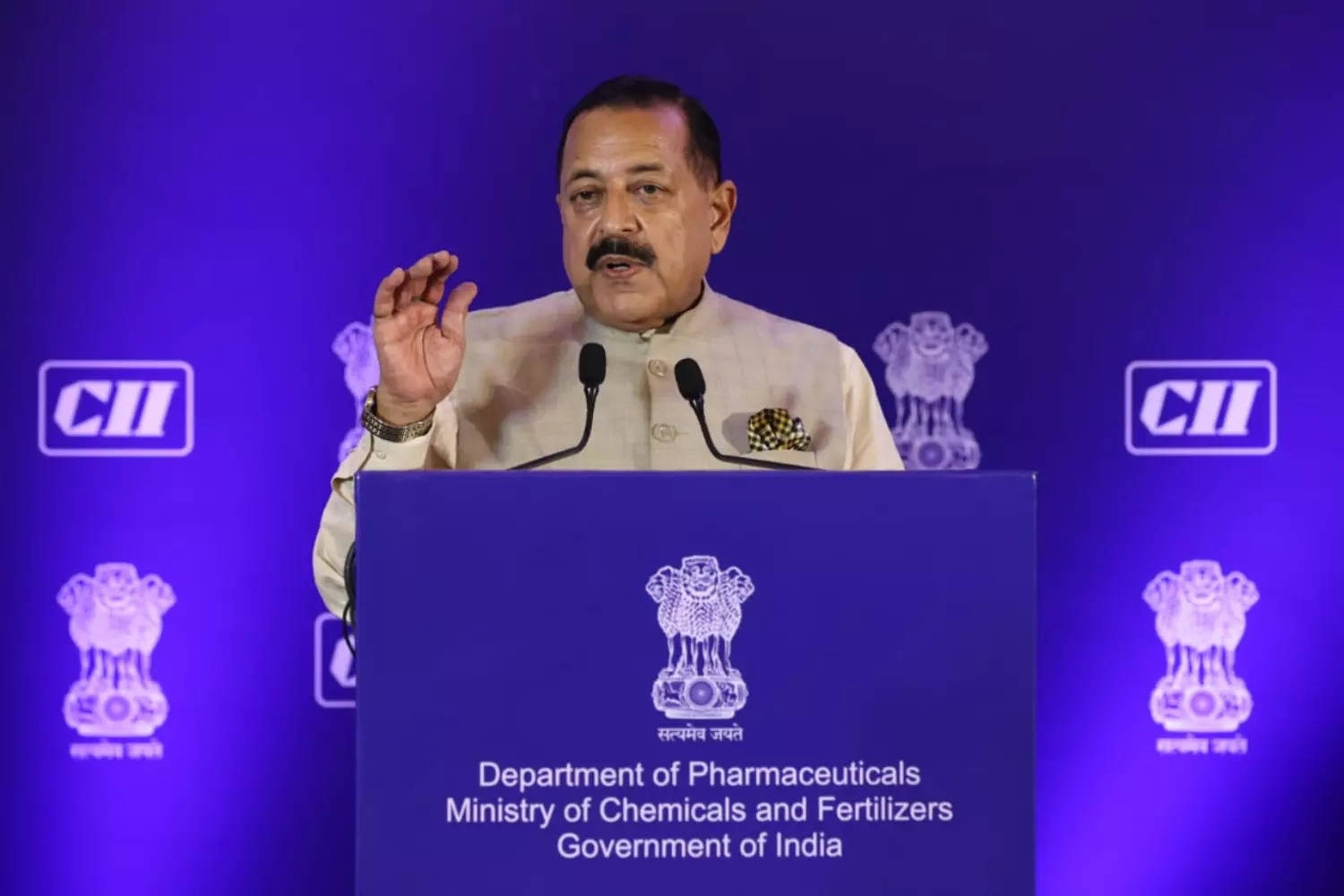
New Delhi: Biotechnology is set to lead India‘s next industrial revolution, stated Dr Jitendra Singh, Minister of State (Independent Charge), Ministry of Science and Technology, as he emphasized India’s rise as a global hub for affordable healthcare and medical tourism, which has become a major revenue generator. He added, “Biotechnology will be the core driver of India’s next industrial revolution,” stressing the importance of stronger public-private collaboration and a robust research ecosystem to sustain this momentum.
Highlighting the government’s commitment to biotechnology while addressing the CII 6th Pharma and Life Sciences Summit 2024 in New Delhi, Dr Singh pointed out the rapid growth in biotech startups, which have surged from just 50 in 2014 to over 5,000 today. He attributed this growth to venture funds and policies that have created a thriving bioeconomy.
India’s bioeconomy, which has grown ten-fold since 2014, reflects the country’s rising global leadership in healthcare and biotechnology. he urged for an inclusive innovation framework that balances intellectual property, data protection, and clinical trial challenges.
Pharma and Biotech: Growth Engines of the Indian Economy
Dr. Arunish Chawla, Secretary, Department of Pharmaceuticals, Ministry of Chemicals and Fertilizers, lauded the pharmaceutical and biotechnology sectors, which have become India’s 4th largest export manufacturing industry. He highlighted India’s ambition to become the “pharmacy of the world” and a global leader in life sciences. According to Chawla, these industries generate twice as much value per output compared to other manufacturing sectors, making them key drivers of economic growth.
Looking ahead, he emphasised the importance of increasing R&D and enhancing regulatory frameworks, particularly in biologics and biosimilars. He celebrated India’s achievement in exporting more bulk drugs than it imports for the first time, signaling a positive shift in the industry’s trajectory.
Biotechnology’s Role in India’s Future
Dr. Rajesh S. Gokhale, Secretary of the Department of Biotechnology, highlighted biotechnology’s pivotal role in India’s economic and environmental progress. He introduced the BioE3 Policy, which aims to drive economic growth, protect the environment, and generate employment. Dr. Gokhale noted that for India to achieve its “Viksit Bharat 2047” vision, it must break free from the “middle-income trap” by investing in technological innovation.
He called for a paradigm shift in biotech R&D, urging increased industry investment and leveraging India’s demographic and geographic strengths to create a unique model for biotech development.
Regulatory Reforms Powering India’s Pharma Growth
Dr. Rajeev Singh Raghuvanshi, Drugs Controller General of India, highlighted the regulatory reforms that are streamlining India’s path to becoming the “pharmacy of the world.” The Central Drugs Standard Control Organization (CDSCO) has implemented several measures to fast-track drug approvals, particularly for biologics and innovative therapies.
With the introduction of an online system, approval times have been slashed from 20-60 days to under three days, significantly easing the import process. Dr. Raghuvanshi also noted that India now accepts clinical data from select countries, accelerating the market entry of new drugs and strengthening India’s position as a global pharmaceutical hub.
Pandemic Preparedness and Future Health Crises
Dr. Vinod K. Paul, Member of NITI Aayog, stressed the importance of pandemic preparedness, calling for proactive R&D and rapid vaccine development to combat future health crises. Reflecting on the lessons learned from the COVID-19 pandemic, Dr. Paul emphasized the need for a “100-day mission” model to ensure faster response times and pre-approved vaccine pipelines.
He highlighted the importance of manufacturing capabilities across multiple vaccine platforms and urged international collaboration to strengthen India’s self-reliance in pandemic preparedness.
A Roadmap to Triple the Sector’s Growth
Dr Rajesh Jain, Chairman of the CII National Committee on Biotechnology, urged the government to continue supporting the pharmaceutical and biotechnology sectors, with a vision of tripling their size to USD 300 billion by 2047. He praised reforms like the Production-Linked Incentive (PLI) scheme and called for further regulatory simplifications to enhance industry efficiency and foster innovation.
Dr Jain recommended promoting digital health and integrating technologies such as AI, machine learning, and big data analytics into biotech research. He also urged the government to prioritize vaccines aligned with public health needs, which would further strengthen India’s Universal Immunization Program.







